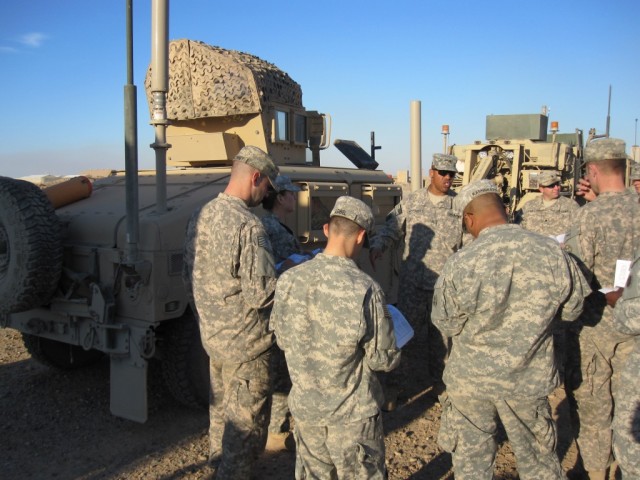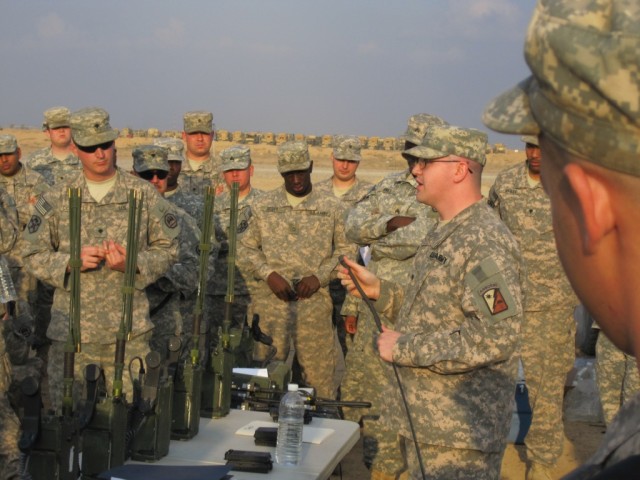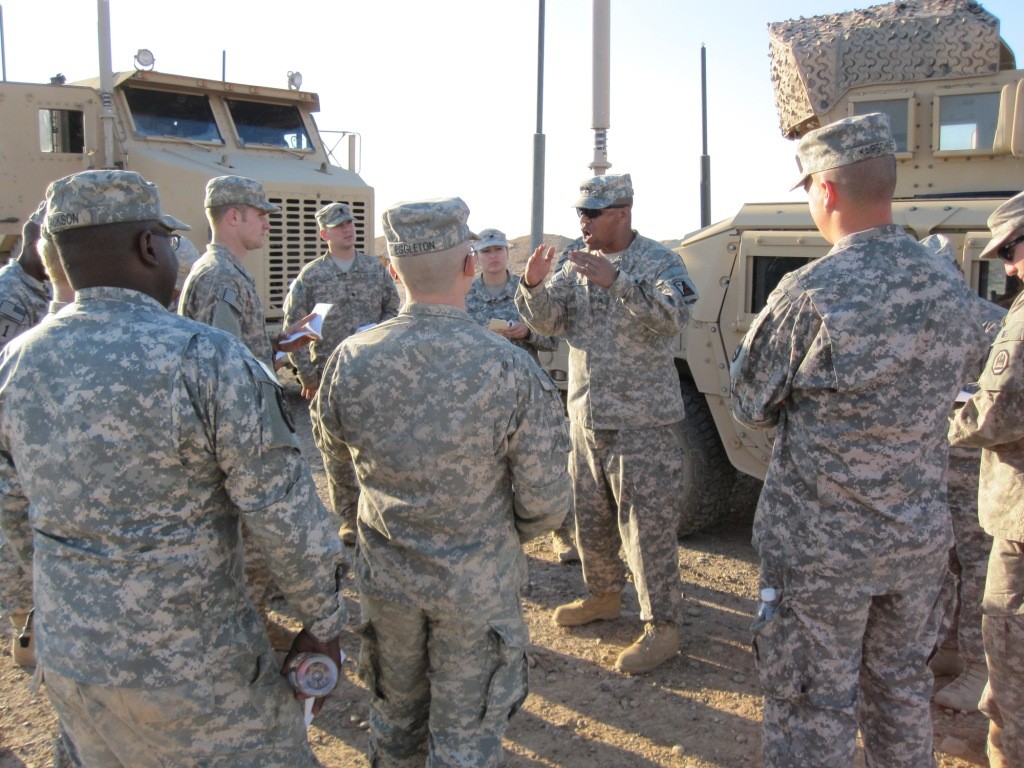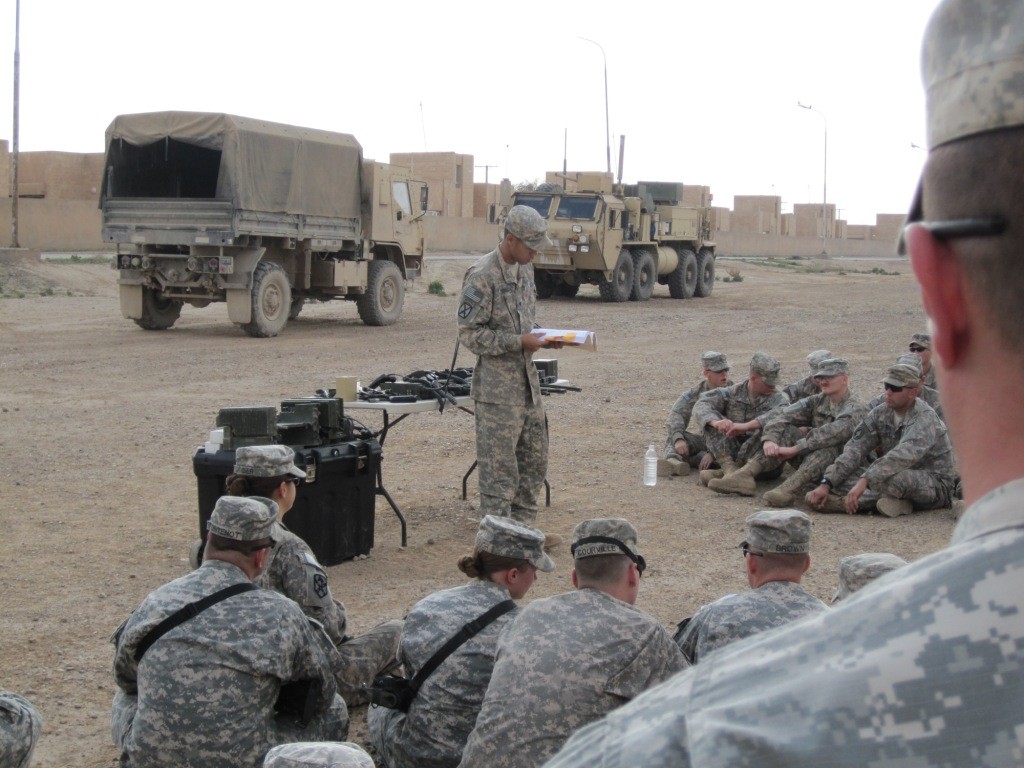CONTINGENCY OPERATING BASE SPEICHER, Iraq - The 264th Combat Sustainment Support Battalion, 15th Sustainment Brigade, 13th Sustainment Command (Expeditionary), communications section, commonly referred to as "Section 6," set out to train over 180 drivers and truck commanders on essential operator level communication tasks beginning Jan. 21 at Contingency Operation Base Speicher.
There were three primary blocks of instruction on each of the three days of training. Block I introduced participants to the basic radio parts and procedures. Block II, taught by Spc. De'Aaron Green, signal support specialist from Baltimore, Md., helped users get to know the simple key loader and transfer communication security keys to encrypt radio communications.
Spc. Ryan McCauley, an information systems operator from Raleigh, N.C., presented the final block of instruction, giving useful tips and techniques for radio maintenance and troubleshooting.
McCauley stressed the importance of performing a proper preventative maintenance checks and services prior to departing for a mission, emphasizing cables, connections and cleanliness.
This training was not a "check-the-box" mandate, MacCauley said. It was a hands-on, no slide show, no nonsense, how-to presentation designed to address the specific communication problems encountered on convoy missions.
Each day of training ended at dusk, with participants demonstrating their comprehension by successfully filling a radio using an SKL in under five minutes.
Spc. Herbert Rock, a signal support specialist from the 1083rd Transportation Company and Monroe, La., native, was thankful for the training.
"Normally people come to me and ask me to fill their radio; now they are coming up to me and asking me for an SKL so they can fill their own radio," Rock said.










Social Sharing